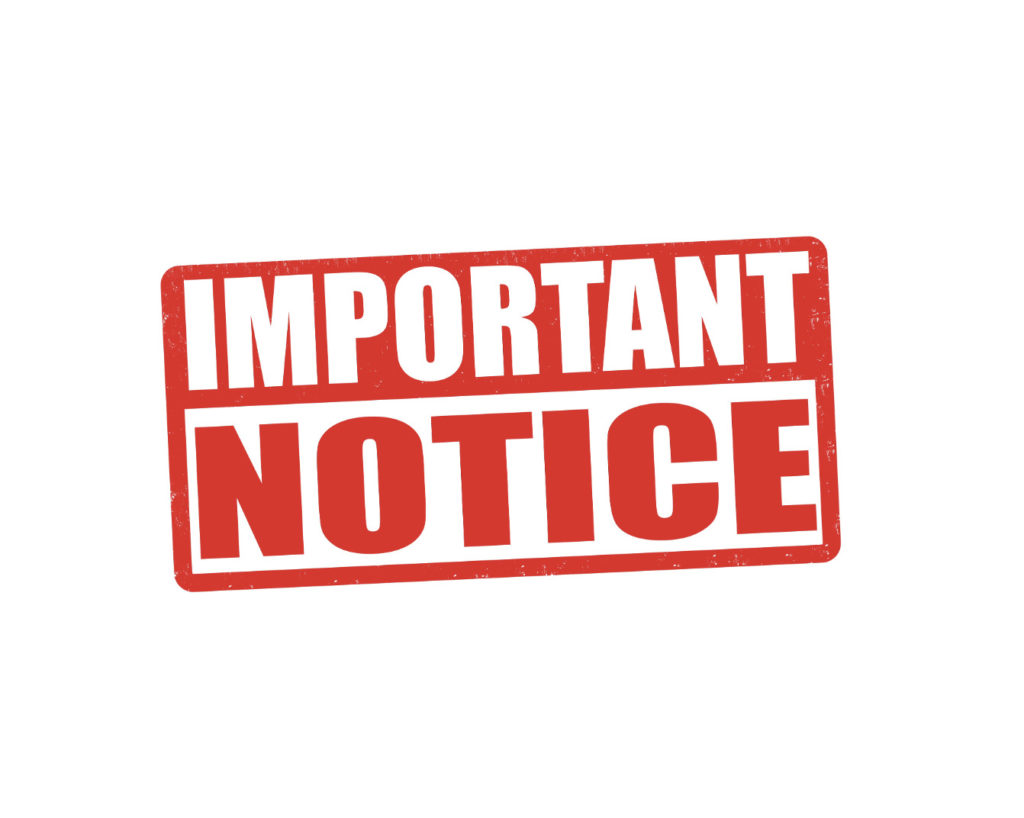“Patentees must think strategically before firing off cease-and-desist letters and during follow-up correspondence or meetings, lest they ultimately find themselves defending against a declaratory judgment suit in a faraway forum.”
 There are many reasons why patent holders might want to put potential infringers on notice of their rights. Such communications can serve the salutary goal of encouraging settlement of disputes without resort to lawsuits. And under some circumstances, notice may be legally necessary under 35 U.S.C. § 287 to enable a patent holder to recover damages for infringement. But a patent holder might be reluctant to do this if providing such notice can subject it to personal jurisdiction for a declaratory judgment suit in a remote and inconvenient forum.
There are many reasons why patent holders might want to put potential infringers on notice of their rights. Such communications can serve the salutary goal of encouraging settlement of disputes without resort to lawsuits. And under some circumstances, notice may be legally necessary under 35 U.S.C. § 287 to enable a patent holder to recover damages for infringement. But a patent holder might be reluctant to do this if providing such notice can subject it to personal jurisdiction for a declaratory judgment suit in a remote and inconvenient forum.
Over two decades ago, the Federal Circuit provided some comfort to patentees on this issue in Red Wing Shoe Co., Inc. v. Hockerson-Halberstadt, Inc., 148 F.3d 1355, 1360-61 (Fed. Cir. 1998). There, the court explained that “[p]rinciples of fair play and substantial justice afford a patentee sufficient latitude to inform others of its patent rights without subjecting itself to jurisdiction in a foreign forum.” The policy behind Red Wing Shoe is that a patent holder should be permitted to send a notice letter into foreign jurisdictions to try to settle disputes without being hauled into court there.
In recent years, however, the Federal Circuit has emphasized that this policy has its limitations. The court’s recent opinion in Apple Inc. v. Zipit Wireless, Inc., 30 F.4th 1368 (Fed. Cir. 2022) stands as an important warning.
Zipit is a Delaware company with its place of business in South Carolina. It owns patents directed to certain wireless instant messaging devices that it believed Apple had infringed. Zipit exchanged numerous letters and emails with Apple and met in person on two occasions at Apple’s headquarters located in the Northern District of California to try to resolve the dispute. During those meetings and calls, the parties discussed licensing and Apple’s contentions of non-infringement and invalidity. They exchanged drafts of a license agreement, but ultimately did not reach an agreement.
The District Court’s Opinion
Apple filed a complaint in the Northern District of California seeking a declaratory judgment of noninfringement. Zipit moved to dismiss Apple’s complaint for lack of personal jurisdiction. While the District Court believed Zipit had engaged in sufficient contacts with California, it ultimately concluded that its exercise of jurisdiction over Zipit would be unreasonable under Red Wing Shoe. The court reasoned that “Zipit’s contacts with California all related to the attempted resolution of the status of” the patents-in-suit “for the purpose of warning against infringement.” It, therefore, dismissed Apple’s declaratory judgment suit.
The Federal Circuit’s Opinion
When Apple appealed, however, the Federal Circuit reversed. By sending “multiple letters and claim charts accusing Apple of patent infringement and also travel[ing] to Apple’s offices in California to discuss these accusations, . . . Zipit … directed its activities to California.” The court also observed that exercising jurisdiction over Zipit would not be unreasonable under the totality of the “Burger King factors.” It disagreed with the district court that Red Wing Shoe had created an overriding exception to the Burger King factors in cases where a patentee sought to inform others of its patent rights. While the policy favoring settlement should be given some weight as a consideration, it is not in itself dispositive. Jurisdictional analysis under the Due Process Clause of the Constitution is simply not amenable to such bright-line rules and exceptions.
The Federal Circuit emphasized how Zipit’s conduct exceeded merely putting Apple on notice of its rights. Rather, it had (1) kept Apple apprised of the status of ongoing inter partes reviews of the patents-in-suit and (2) escalated its allegations of infringement, going so far as twice describing Apple’s infringement as willful. On this basis, the court was able to distinguish its precedent in Autogenomics, Inc. v. Oxford Gene Tech. Ltd., 566 F.3d 1012 (Fed. Cir. 2009), in which the potential target had expressed interest in taking a license and the patentee had flown to California to discuss. Unlike Zipit’s conduct, the patentee in Autogenomics had not engaged in “sufficient activities ‘relat[ing] to the validity and enforceability of the patent’ in addition to the cease-and-desist communications.”
Accordingly, the court held that it was consistent with due process to allow Apple’s declaratory judgment suit against Zipit to proceed in California.
Practical Considerations
While there are many fair and salutary reasons for patentees to engage with potential infringers prior to litigation, Zipit stands as an important cautionary tale. Patentees must think strategically before firing off cease-and-desist letters and during follow-up correspondence or meetings, lest they ultimately find themselves defending against a declaratory judgment suit in a faraway forum. A single notice letter may not be sufficient to establish minimum contacts with the forum where the letter is sent, but a letter in conjunction with emails, phone calls and/or in-person meetings that often follow a notice letter may suffice depending on the circumstances. This is especially true where the communications are substantive and discuss the validity and enforceability of a patent or threaten litigation.
Image Source: Deposit Photos
Author: roxanabalint
Image ID: 57864023

![[IPWatchdog Logo]](https://ipwatchdog.com/wp-content/themes/IPWatchdog%20-%202023/assets/images/temp/logo-small@2x.png)

![[[Advertisement]]](https://ipwatchdog.com/wp-content/uploads/2024/04/Patent-Litigation-2024-banner-938x313-1.jpeg)

![[Advertisement]](https://ipwatchdog.com/wp-content/uploads/2024/04/UnitedLex-May-2-2024-sidebar-700x500-1.jpg)
![[Advertisement]](https://ipwatchdog.com/wp-content/uploads/2024/04/Artificial-Intelligence-2024-REPLAY-sidebar-700x500-corrected.jpg)
![[Advertisement]](https://ipwatchdog.com/wp-content/uploads/2024/04/Patent-Litigation-Masters-2024-sidebar-700x500-1.jpg)

![[Advertisement]](https://ipwatchdog.com/wp-content/uploads/2021/12/WEBINAR-336-x-280-px.png)
![[Advertisement]](https://ipwatchdog.com/wp-content/uploads/2021/12/2021-Patent-Practice-on-Demand-recorded-Feb-2021-336-x-280.jpg)
![[Advertisement]](https://ipwatchdog.com/wp-content/uploads/2021/12/Ad-4-The-Invent-Patent-System™.png)






Join the Discussion
No comments yet.